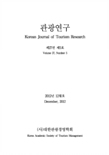본 연구는 기존의 브랜드확장광고에 관한 연구와는 달리 맥락적(contextual) 관점에서 모 브랜드인 호텔 브랜드의 컨셉에 따라, 그리고 소비자의 사고방식에 따라 선호형태가 다르게 나타날 것이라고 예측하였다. 구체적으로는 1) 모브랜드인 호텔브랜드의 컨셉이 기능적(상징적)일 때는 정교화(관련성) 광고 및 그 광고의 확장제품에 더 호의적일 것이고, 2) 소비자가 분석적(종합적) 사고자인 경우에는 정교화(관련성) 광고 및 그 광고의 확장제품에 더 호의적일 것이라고 예상하였다. 이를 위하여 대구?부산권 소재의 호텔이용자 360명(상징적 브랜드: 171명, 기능적 브랜드: 189명)을 대상으로 설문조사를 진행하였다. 연구결과, 확장광고에 노출된 소비자가 분석적사고자인 경우 확장제품에 대한 태도는 통계적으로 유의미한 차이를 보이지 않은 경우를 제외하고는 모든 가설이 예상한 바와 같이 지지되었다. 본 연구는 최근의 외적성장전략의 하나로 추진되는 호텔기업의 경영 다각화와 관련하여 이론적 뿐만 아니라 실질적인 의미와 가치를 높이고 소비자의 행동을 이해하여 호텔기업의 마케팅 커뮤니케이션에 대한 시사점을 제공함으로써 실무적으로도 의미 있는 연구가 될 것이다.
The purpose of this study is to examine the influence of brand concepts(symbolic vs. functional) and thinking styles(holistic vs. analytic) on the attitude toward extension ads(relational vs. elaborational) and extension product. The result of this study showed: (1) Consumers preferred elaborational(relational) ads and extension product in that ads to relational(elaborational) ads and one in that ads if brand concept was functional (symbolic). (2) Consumers preferred elaborational(relational) ads to relational(elaborational) ads if consumers" ways of thinking were analytic(holistic). Also they preferred extension product in relational(elaborational) ads to in elaborational(relational) ads if consumers" ways of thinking were holistic(analytic). But their attitude difference toward extension product was not significant meaning statistically if consumers" ways of thinking were analytic.This study provides a theoretical-practical implications for marketing communication of hotels with the relation to business diversification as a one of external growth strategies.
요약
Ⅰ. 서론
Ⅱ. 이론적 배경 및 가설설정
Ⅲ. 실증분석
Ⅳ. 가설의 검증
Ⅴ. 결론
참고문헌
Abstract
(0)
(0)
